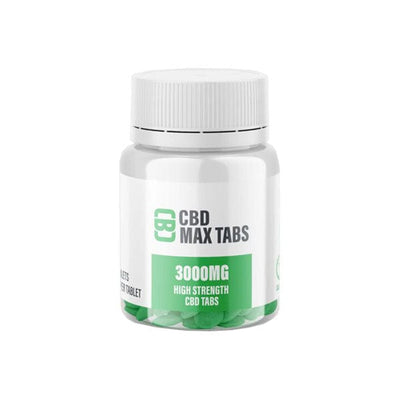CBD for Irritable Bowel Syndrome: A Potential Natural Remedy?
Introduction
Irritable Bowel Syndrome (IBS) is a common gastrointestinal disorder characterized by chronic abdominal pain, bloating, and changes in bowel habits. With no definitive cure, many sufferers are exploring alternative treatments to manage their symptoms. One promising option is CBD (cannabidiol), a non-psychoactive compound derived from the Cannabis sativa plant. In this short blog, we'll delve into the potential benefits of CBD for IBS and discuss how it may help alleviate symptoms.
CBD and IBS: The Connection
CBD interacts with the body's endocannabinoid system (ECS), a complex cell-signaling system that plays a crucial role in maintaining balance and regulating various functions, such as pain, inflammation, and digestion. Since IBS is associated with an imbalance in the gastrointestinal system, it's thought that CBD's interaction with the ECS may help manage IBS symptoms.
Potential Benefits of CBD for IBS
-
Anti-inflammatory properties: Inflammation in the gut is believed to contribute to IBS symptoms. CBD has shown anti-inflammatory properties in various studies, which may help reduce inflammation in the digestive tract and alleviate symptoms.
-
Pain relief: Abdominal pain is a common symptom of IBS, and CBD has demonstrated analgesic effects in preclinical and clinical research. By interacting with the ECS, CBD may help reduce the perception of pain in IBS sufferers.
-
Reduced anxiety and stress: Anxiety and stress are known triggers for IBS flare-ups. CBD has been shown to possess anxiolytic properties, which may help reduce stress and anxiety, potentially leading to better management of IBS symptoms.
-
Improved gut motility: CBD may help regulate gut motility, or the movement of food through the digestive system. By modulating the ECS, CBD may help normalize bowel movements, reducing diarrhea or constipation associated with IBS.
How to Use CBD for IBS
When considering CBD for IBS, it's essential to choose the right product and dosage. CBD products come in various forms, such as oils, tinctures, capsules, and edibles. It's recommended to start with a low dose and gradually increase until you find the optimal amount to manage your symptoms.
Before starting any new supplement, it's essential to consult with a healthcare professional, especially if you're taking medications or have other medical conditions.
Conclusion
CBD's interaction with the endocannabinoid system may offer potential benefits for those suffering from IBS, including reduced inflammation, pain relief, and improved gut motility. While more research is needed to fully understand the relationship between CBD and IBS, anecdotal evidence and preliminary studies suggest that it may be a promising natural remedy. As always, consult with a healthcare professional before incorporating CBD into your IBS management plan.






Leave a comment